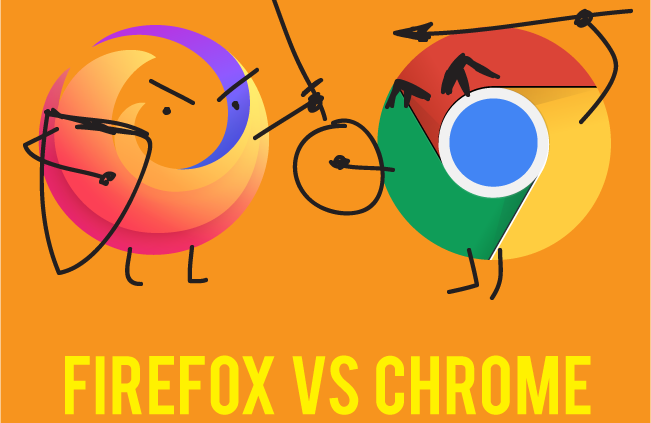Recommended Browser: Chrome Or Firefox?
In 2008, Google launched most popular and commonly used browser, named as “Chrome”. At the time, there were many other browsers, such as Mozilla Firefox, IE and Safari that were widely used. Question arises whether selection of browser in this competitive market can make some differences? In current scenario, Microsoft IE is replaced by browser Edge. Even the Edge is not fully compact browser, as it is still in developmental stage. As far as Safari browser is concerned, Apple is no more releasing versions on Windows. Therefore, Firefox is the only browser that can be compared with Chrome to know the differences.
Mozilla Firefox
Firefox is an open source and free of cost browser. In 2009, above 47% users were getting support from Mozilla Firefox. Now the number is reduced to 20% as most of users have selected Google Chrome.
Firefox has launched many versions within the last few years to imitate simple and clean look of Google Chrome. In modern world, all browsers have similar feature and offer bookmarks, saved states, tabbed browsing, download managers and integrated search engines. Usually, selection of a browser depends on individual preferences.
One of the interesting features of Firefox is extensions. Through extensions, more features are added for browsing such as URL shorteners and ad blockers. Users are given choice to modify the browser look by changing the theme. If you are interested in themes or extensions, you will prefer to use Firefox. Mozilla Firefox manages extensions to make removal or addition easy for users. Users can synchronize history, bookmarks, installed add-ons, and open tabs by using Firefox Sync feature.
Google Chrome
First version of Google Chrome was released in 2008 when opposing browsers were giving additional features like HTML editors and email clients. Chrome has marked its position by giving streamlined, clean and user friendly browsing experience.
Google Chrome has gained popularity by leaps and bounds. Now, it holds almost 51% of market. Growth of Google Chrome is supported by Android users. They are given a platform to synchronize history and bookmarks across Smartphone, as well as PC with Windows, Linux or OS X. Though Firefox offers similar features as Chrome, users prefer Chrome for matchless options for synchronization.
Omnibox is an appealing feature that compels users to rely on Google Chrome. It displays search results inline as you type in the keywords. Moreover, Chrome’s integration with most powerful search engine is another appealing factor that does not let users to switch to another browsers.
Do you like Google’s services like Maps, G+, Gmail and YouTube? You will love to integrate these services with Google Chrome. Chrome also comes with many extensions to establish new features; however, the list of features is shorter than Firefox.
What is more surprising for users is the ratio of memory usage. When same websites are launched on Mozilla Firefox and Chrome, Firefox uses three to four times more memory than Google Chrome. Google Chrome is, therefore, faster than Firefox, as long as you can manage the memory usage of the extensions.
In short, majority of users are sticking with Google Chrome as it works amazingly and synchronize all options like iOS devices, MacBook and Windows PCs.










Leave a Reply
Want to join the discussion?Feel free to contribute!